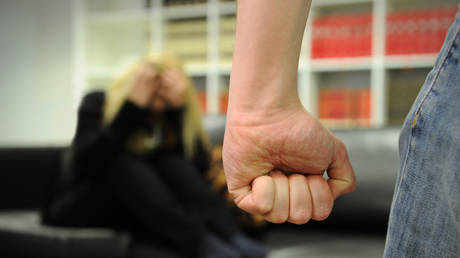
Recent data shows that on average a woman is abused by her partner every 13 minutes in the EU country
A gender equality group in Germany has described as “shocking” the results of a recent poll which found that one-third of men in that country consider it “acceptable” to physically strike a female partner during a heated argument.
A nationwide survey of 1,000 men and 1,000 women in the EU country, published last week by children’s charity Plan International Germany, showed that 33% of men aged between 18 and 35 see no issue with using violence during a confrontation with a woman. A further 34% of respondents admitted to having been violent towards a woman in the past.
Karsten Kassner, a gender-equality advocate with the group Federal Forum Men, said that the results of the survey are “shocking” and suggested that it shows that violence by young men towards women is being normalized.
“It’s problematic that a third of the surveyed men trivialize violence against women,” Kassner said to Germany’s Funke newspaper. “This urgently needs to change.”
Statistics compiled by the German federal police in 2021 show that more than 115,000 women were victims of domestic violence or spousal abuse that year – an average of 13 women abused every hour. That same year, 301 women were killed by their current or former partner.
Separately, the poll also revealed Germany’s adherence towards more-traditional gender roles, as well as a distaste among nearly half of respondents towards public displays of affection between same-sex couples.
52% of men, the poll suggested, believe it to be their role to be the main ‘bread-winner’ in a relationship. By comparison, the same number considered it to be the female’s job to run the household by performing tasks such as cooking and cleaning.
48% of those polled also said they felt “disturbed” by witnessing homosexual couples being affectionate towards one another in public. The results of the survey, a Plan International Germany spokesperson said in a statement, says that “traditional gender roles are still deeply ingrained in people’s minds” in the EU country.




